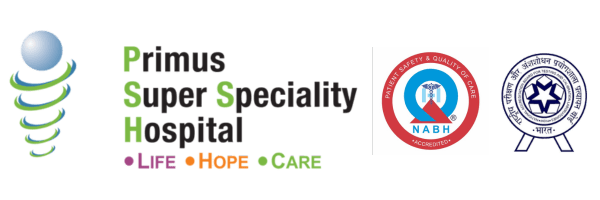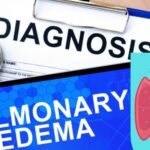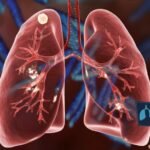When someone says “minor heart attack,” it might sound like something less serious, something you can brush off. But make no mistake — any heart attack, even “minor,” is still a big deal. The word minor does not mean safe. In fact, calling it minor can often mislead people into not seeking urgent care. This delay can become dangerous.
In Delhi, cardiologists are seeing a rising number of patients with early symptoms of heart disease. The lifestyle, stress, and urban diet patterns have made even young adults vulnerable. A cardiology specialist in Delhi often explains that even a small blockage can lead to damage in heart tissues. The truth is — no heart attack should ever be taken lightly.
Let’s break this down — what is a minor heart attack, how is it different from a major one, what are the signs, and what should you do if it happens? This article gives clear, simple answers, backed by medical facts and guided by insights from top heart hospitals in Delhi
What Is a Minor Heart Attack?
A minor heart attack is a type of cardiovascular disease where the heart gets less damage than in a full-blown attack. But damage still happens. In this type, the artery that supplies blood to the heart is not fully blocked — it’s only partially blocked.
This blockage may reduce blood flow, not cut it off completely. Because of that, the symptoms might not seem severe. But here’s the catch — the heart muscle still suffers. Over time, repeated minor attacks or untreated damage can cause serious long-term issues, even heart failure
Minor Heart Attack Symptoms
The signs of a minor heart attack may not be intense or dramatic. That’s why many people ignore them. But doctors from heart hospitals in Delhi warn that these early signs are the body’s way of asking for help.
Here are the most common minor heart attack symptoms:
- Mild chest pain or pressure
- Discomfort that feels like gas or indigestion
- Pain spreading to the shoulders, jaw, or arms
- Shortness of breath, even without chest pain
- Nausea or cold sweats
- Fatigue or dizziness
Sometimes, the symptoms last only a few minutes. This can make people think it’s nothing. But it’s your heart asking you to pay attention.
Difference Between Minor Heart Attack and Major Heart Attack
To understand the difference between minor heart attack and major heart attack, we need to look at how much damage they cause and how much blood flow is blocked.
| Aspect | Minor Heart Attack | Major Heart Attack |
| Artery blockage | Partial | Complete |
| Damage to heart muscle | Less (but still serious) | More (can be life-threatening) |
| Symptoms | Milder, sometimes silent | Severe and sudden |
| ECG changes | Less visible, needs further tests | Clear signs like ST-elevation |
| Long-term risk | High if untreated | Immediate threat |
Even though a minor heart attack causes less damage, ignoring it can lead to major cardiac issues in the future.
Minor Heart Attack Treatment in Delhi
If doctors suspect a minor attack, they act fast. Even if the pain is mild, heart attack treatment is urgent. First, doctors confirm the diagnosis using blood tests and ECG.
Then, treatment begins. It may include:
- Heart attack medicines like aspirin to reduce blood clots
- Beta blockers to reduce heart stress
- Statins to lower cholesterol
- Angiography to check how blocked the arteries are
- Angioplasty or stent placement if needed
Recovery doesn’t stop at the hospital. Patients must follow a heart-healthy lifestyle. This means quitting smoking, managing stress, eating better, and staying active. Regular follow-ups with a cardiology specialist in Delhi are also critical.
Why You Shouldn’t Ignore a Minor Heart Attack
A minor attack is your warning. If you listen to it and take action, you might prevent a bigger one later. But if you ignore it, you increase your risk. Even if you don’t feel pain, your heart may still be under strain. That’s why doctors at Primus Hospitals, one of the leading heart hospitals in Delhi, stress the need for early detection.
You might feel better after a minor attack, but the risk is not over. Silent heart damage can cause:
- Heart failure
- Irregular heartbeat
- A major heart attack
- Sudden cardiac arrest
Lifestyle After Minor Heart Attack
After treatment, the next step is recovery. A minor heart attack should lead to major life changes. These changes can protect your heart and prevent further damage. Here’s what recovery often includes:
1. Heart-friendly Diet
Eat more fruits, vegetables, whole grains, and lean proteins. Cut down salt, sugar, and fried food.
2. Light to Moderate Exercise
A walk every day helps. But ask your doctor before starting.
3. Quit Smoking and Alcohol
Smoking hurts your heart. So, quit before long-term damage.
4. Manage Stress
Deep breathing, meditation, or even short breaks during work can help your heart stay calm.
5. Take Medications on Time
Even if you feel fine, don’t stop your medicines without talking to your doctor:
Is Minor Heart Attack Dangerous
Just because it’s called “minor” doesn’t mean it’s safe. It means the damage was caught early — that’s a good thing. But without care, it can get worse. Minor attacks often lead to major ones if ignored.
Your heart sends signals. Don’t wait until they become alarms. Take action. Get help. Listen to your body. And trust the right experts.
If you live in or around Delhi, and you or someone you know has signs of a heart issue, reach out to Primus Hospitals. They have a full team of heart doctors, round-the-clock emergency care, and advanced heart treatment facilities.













